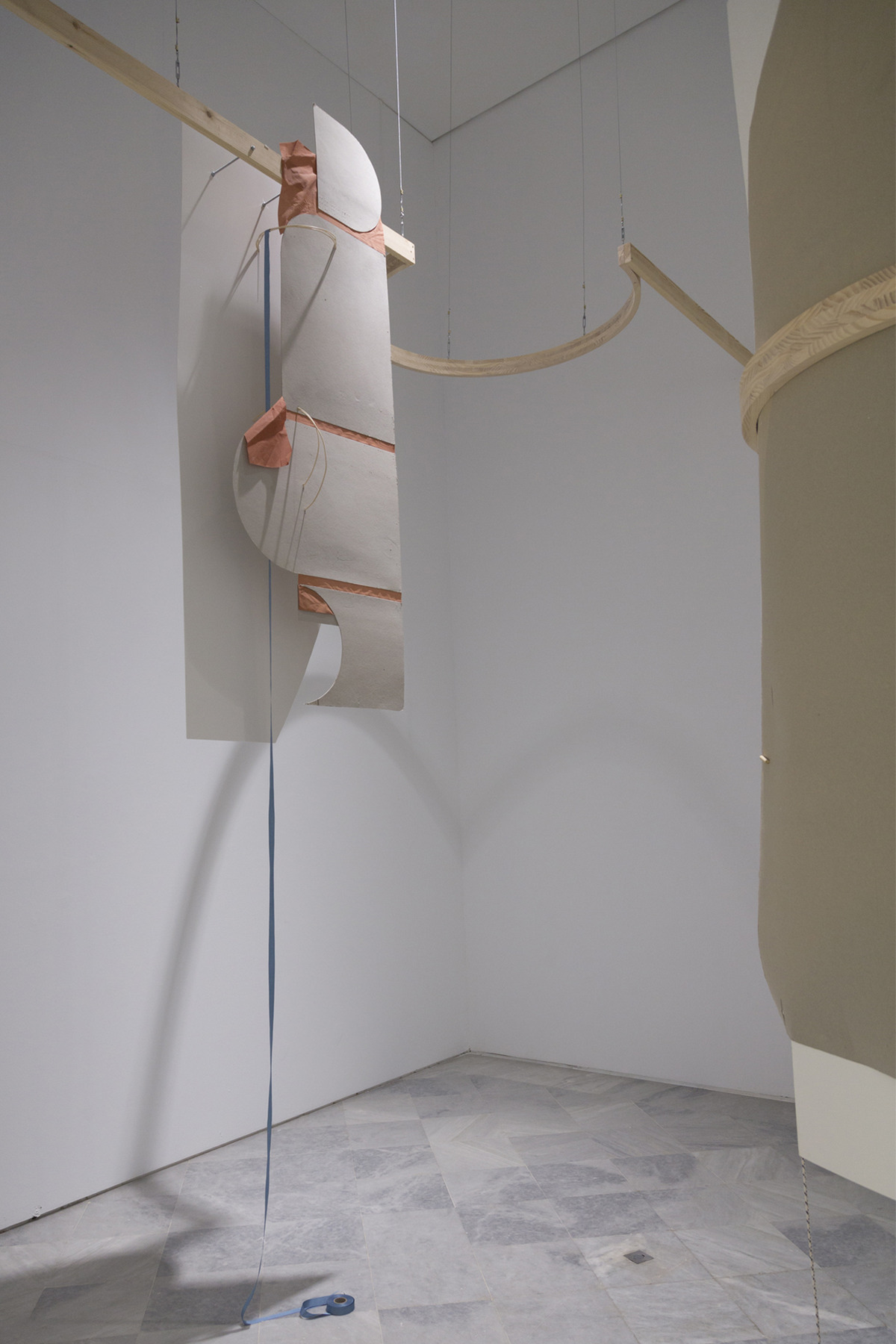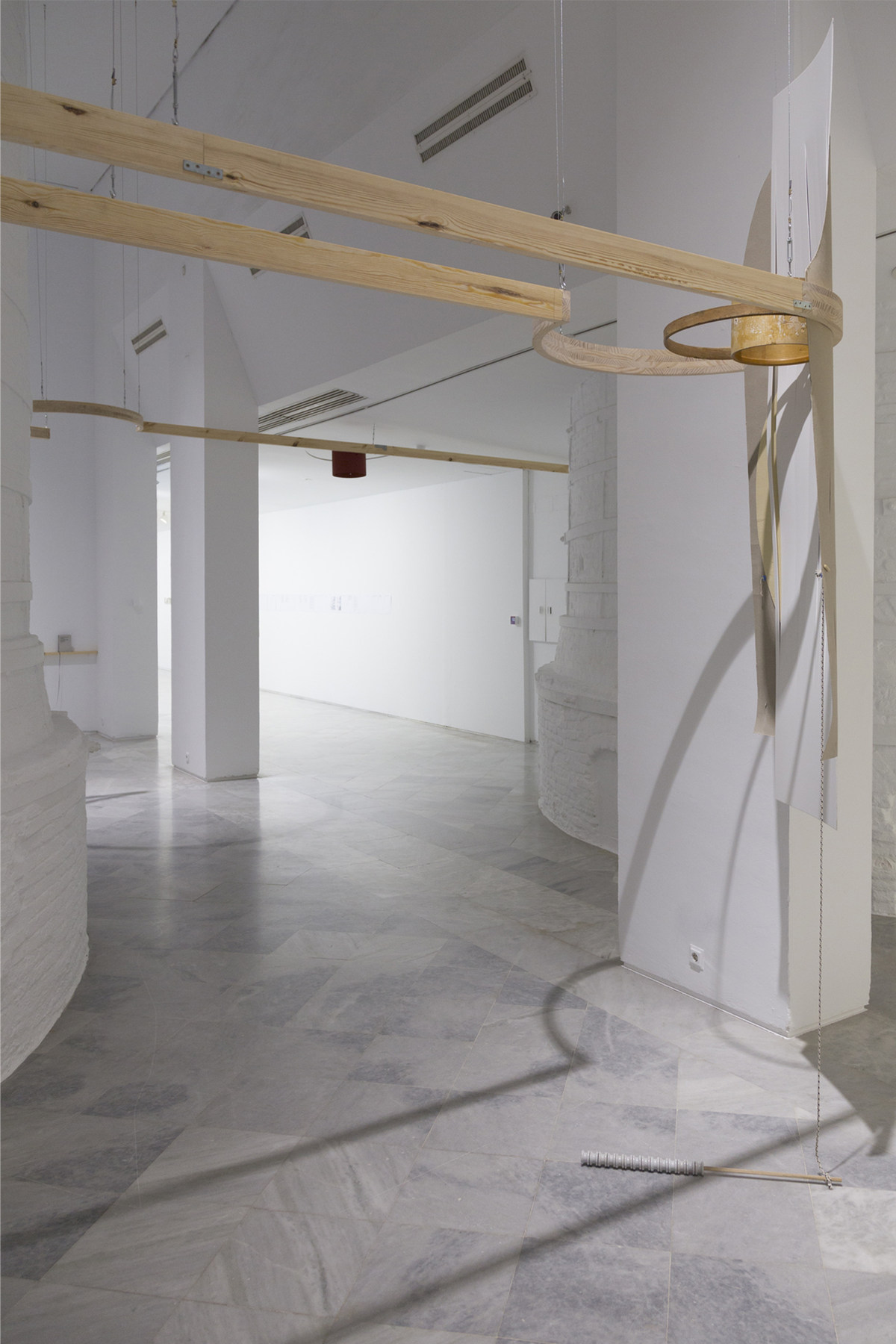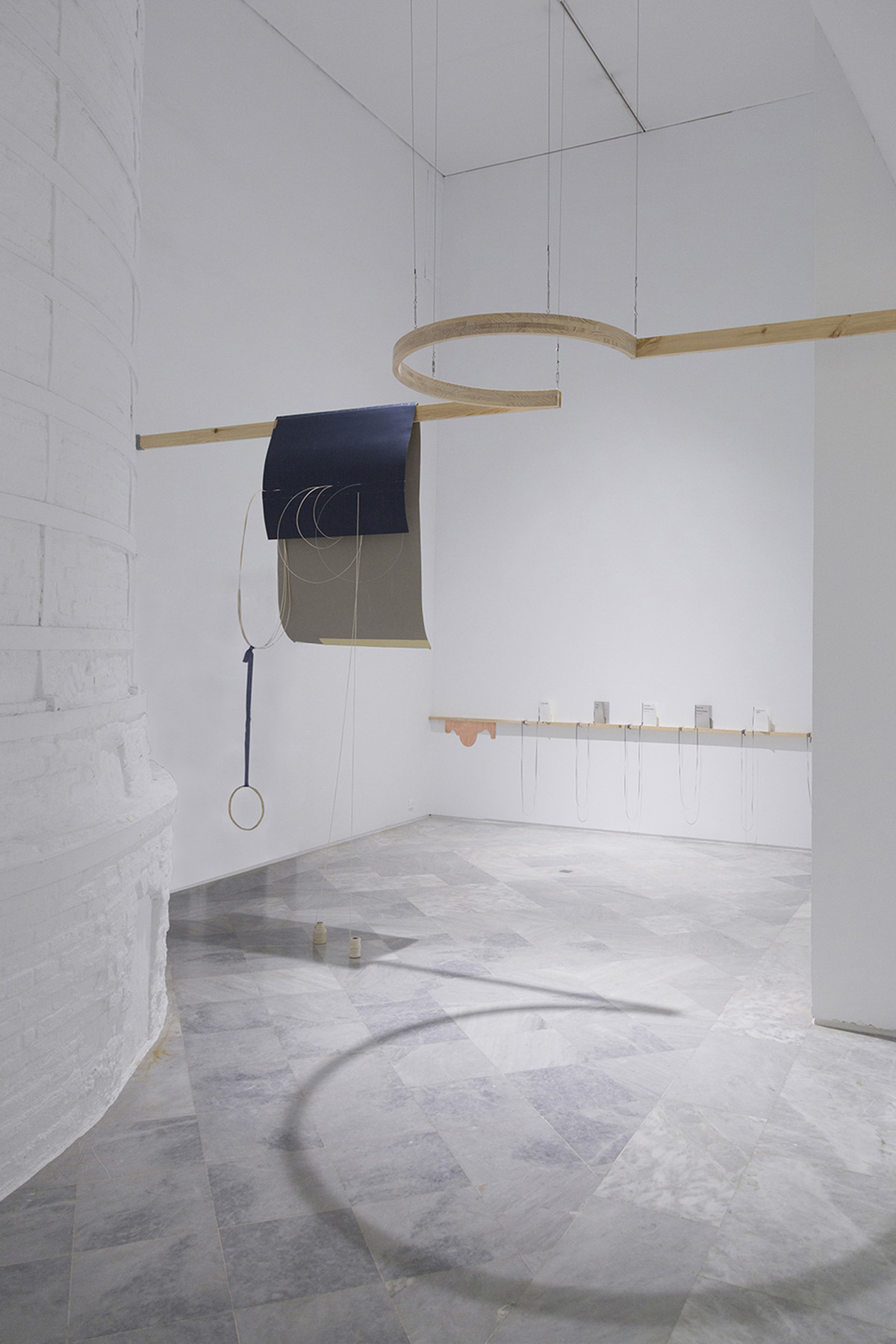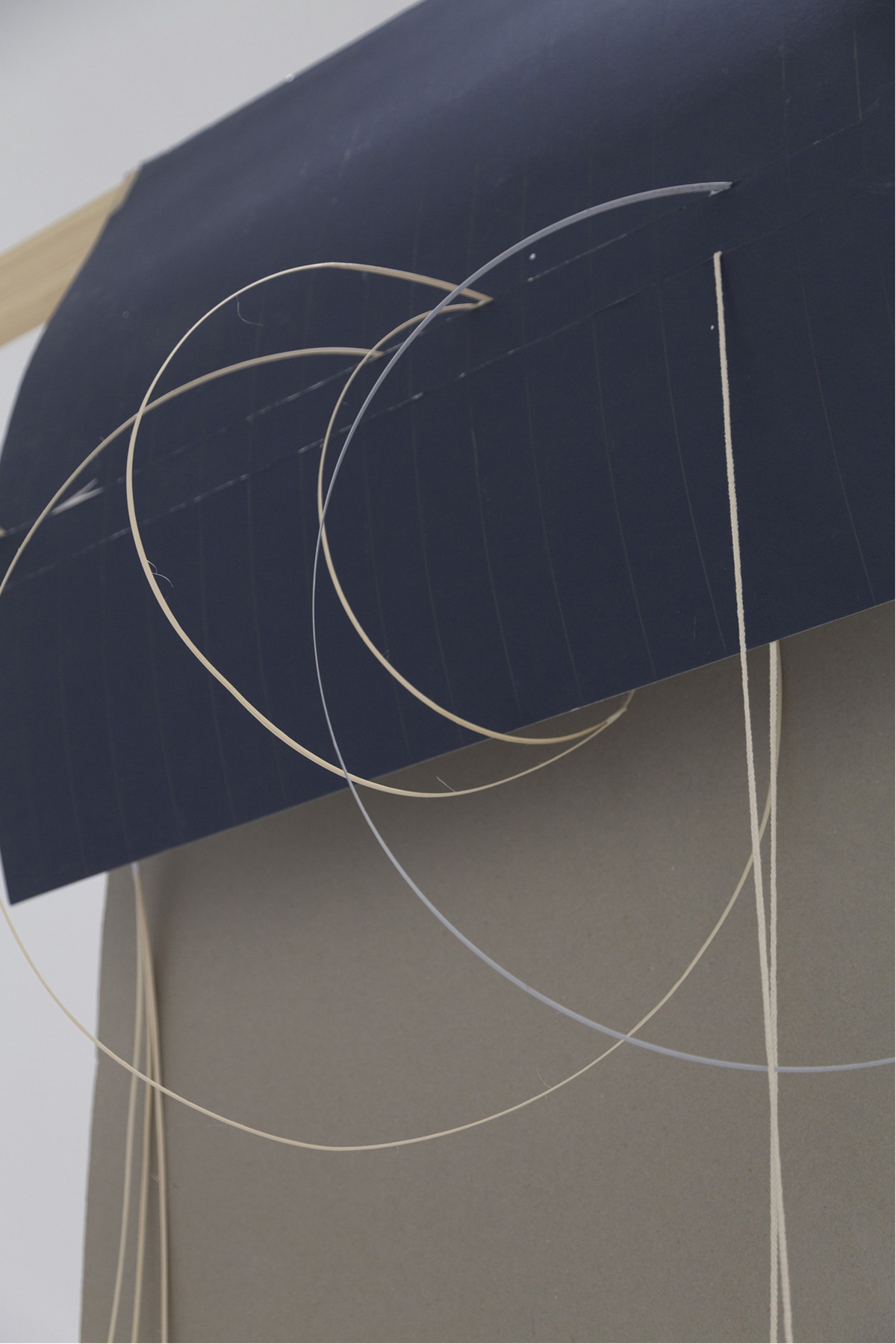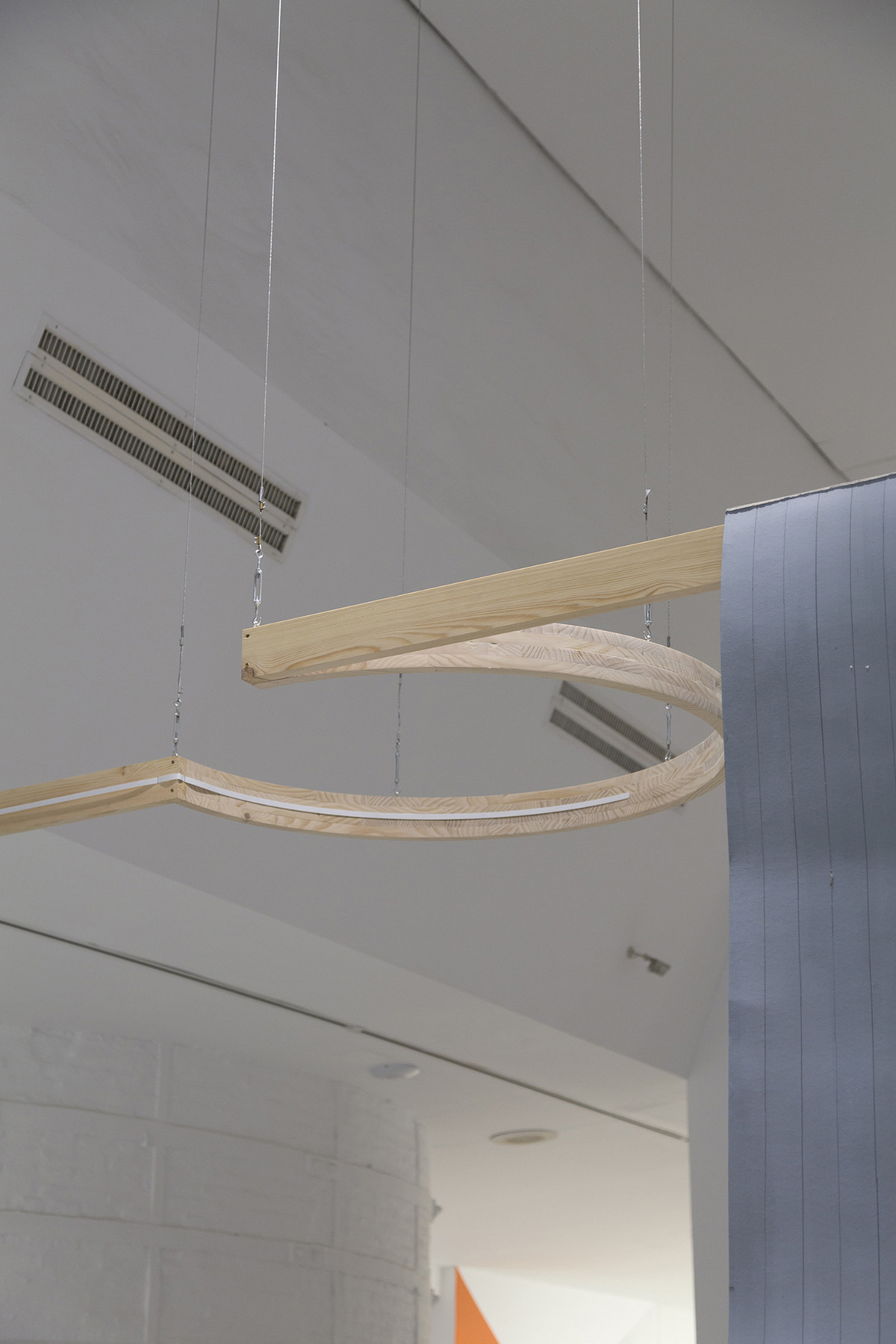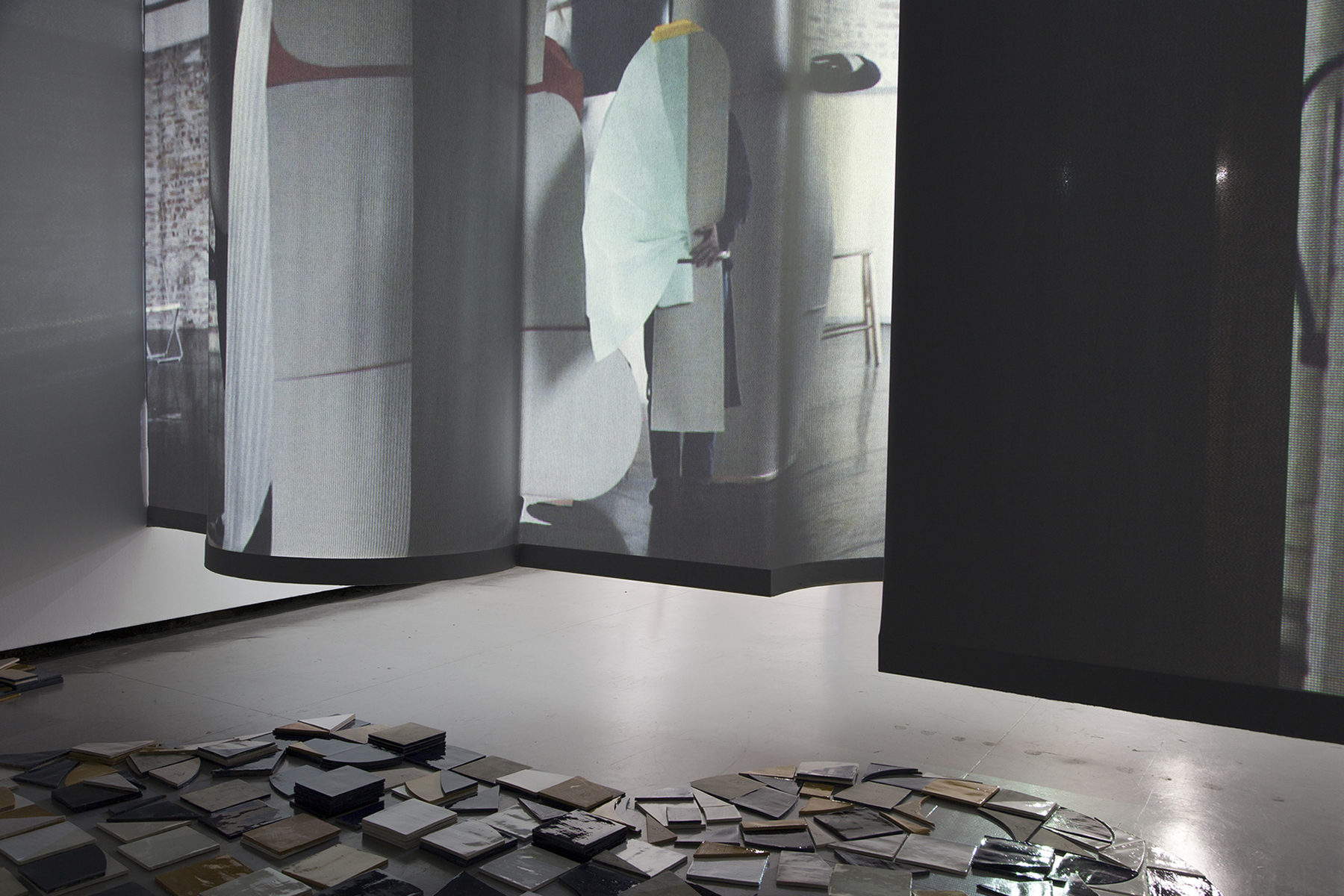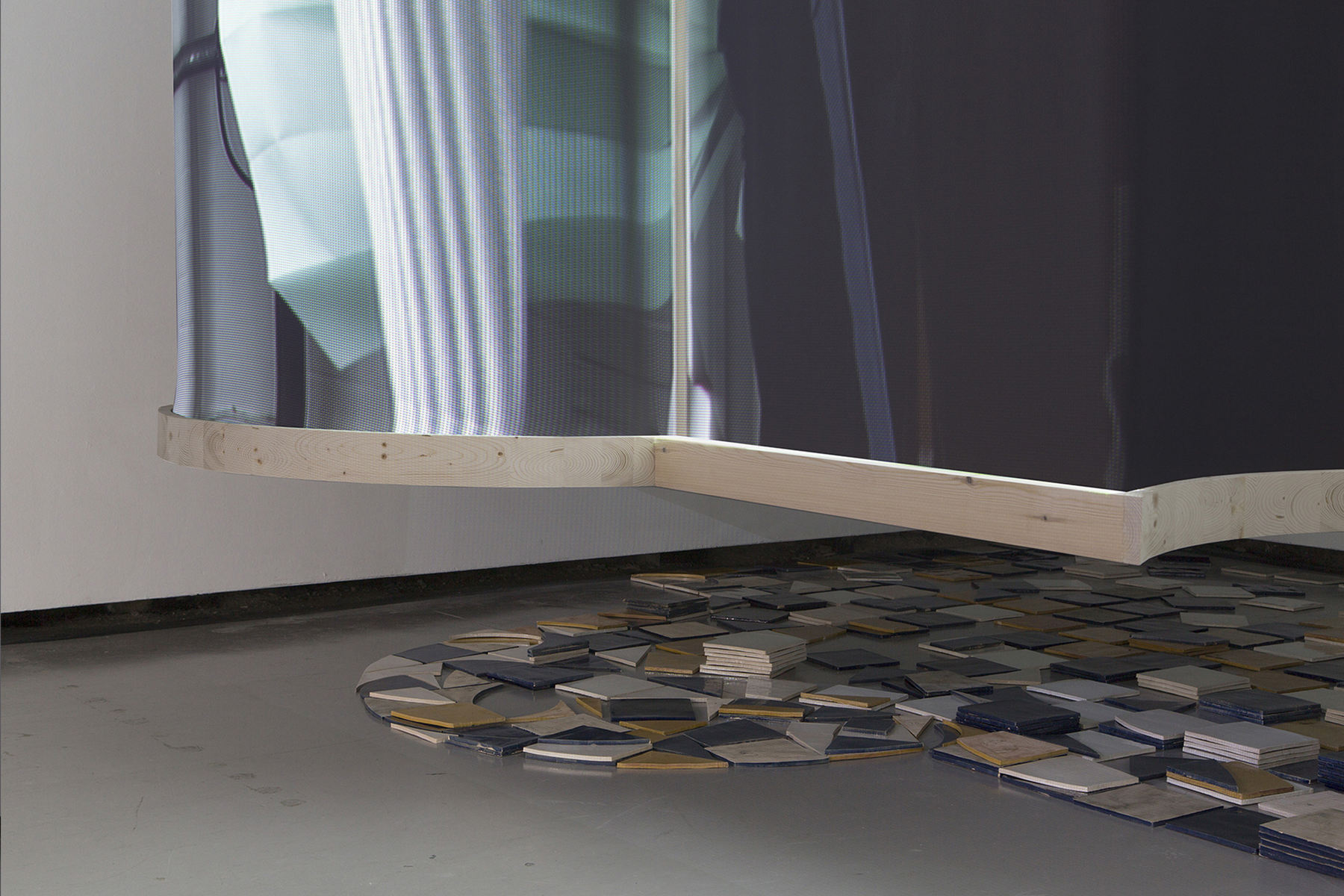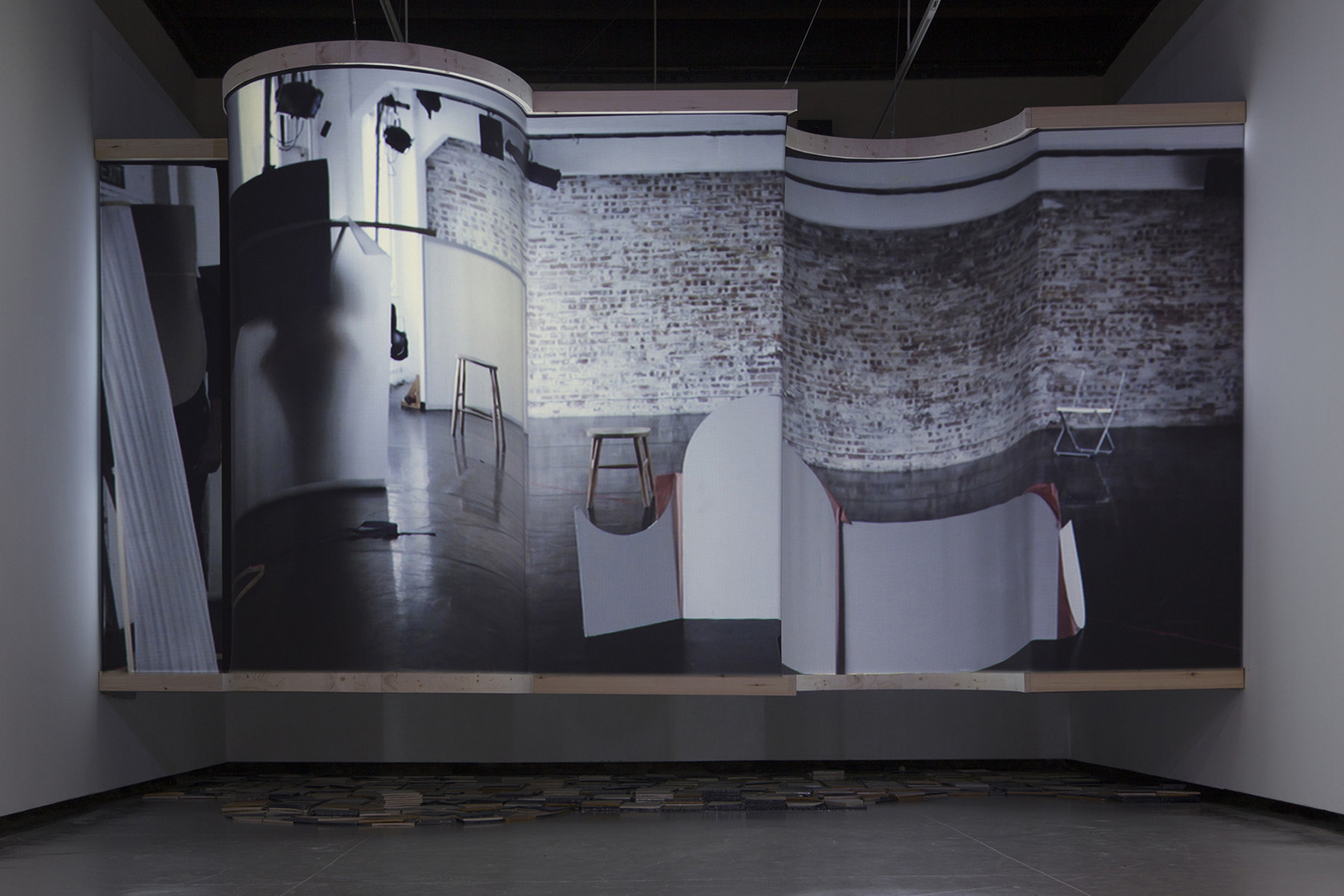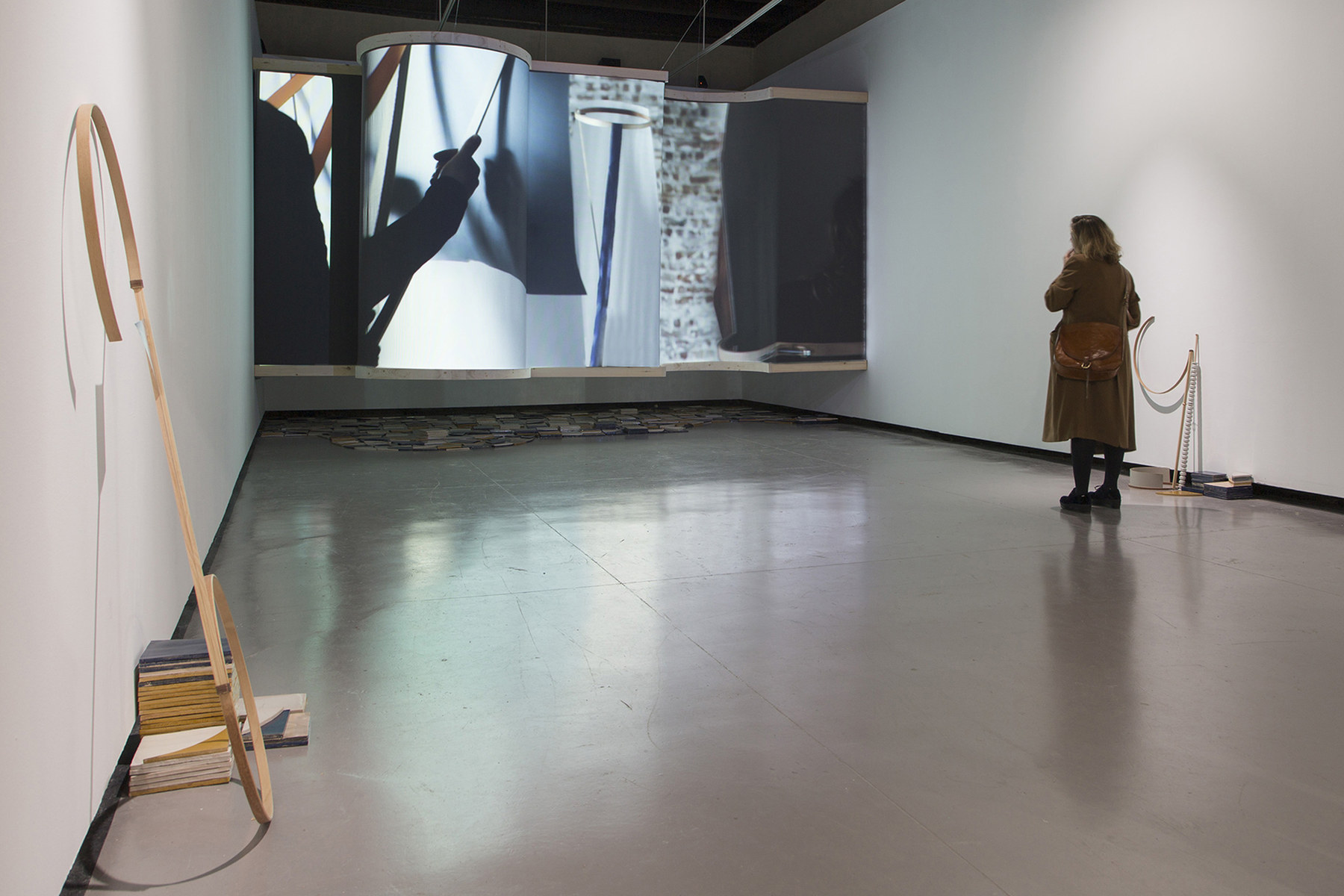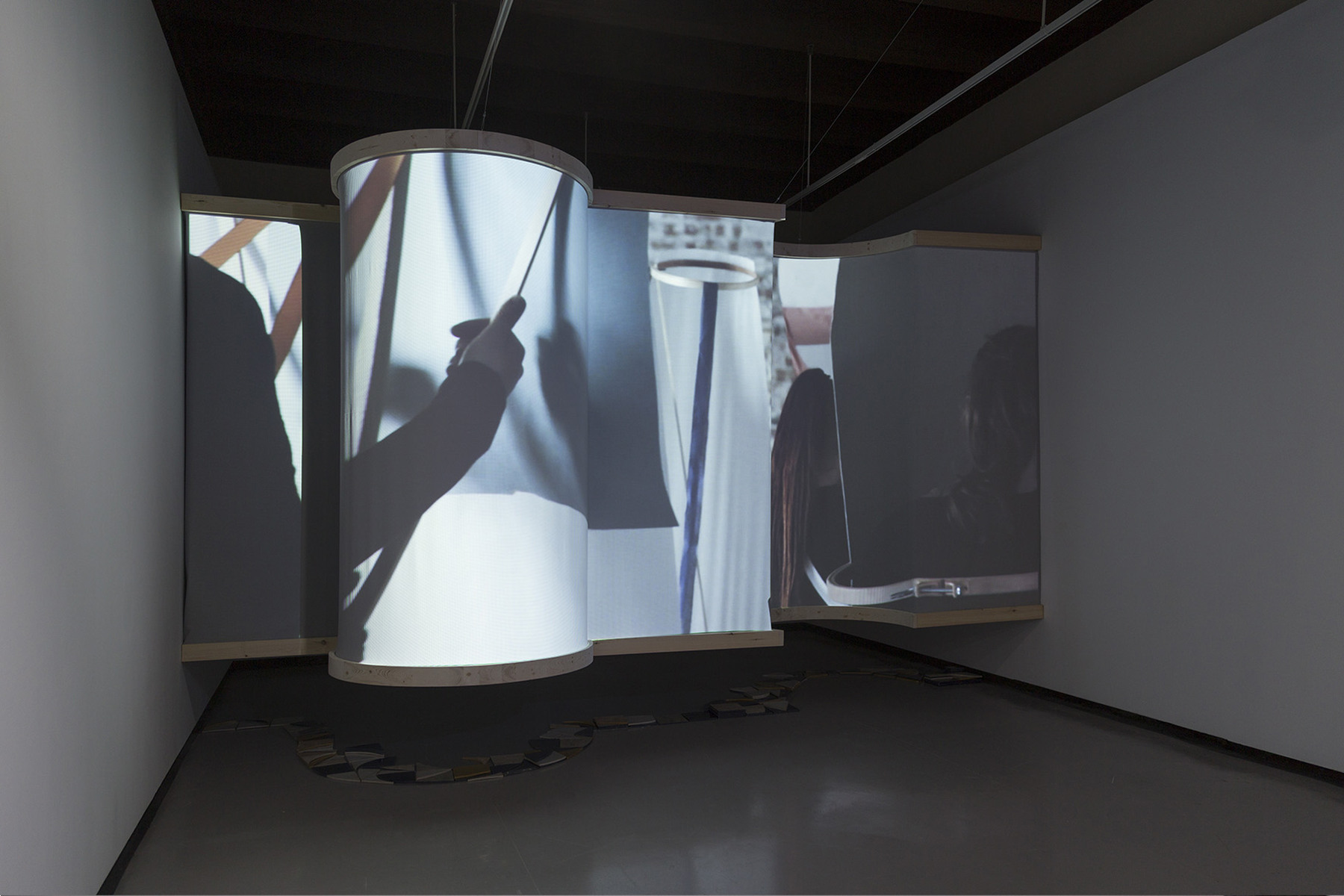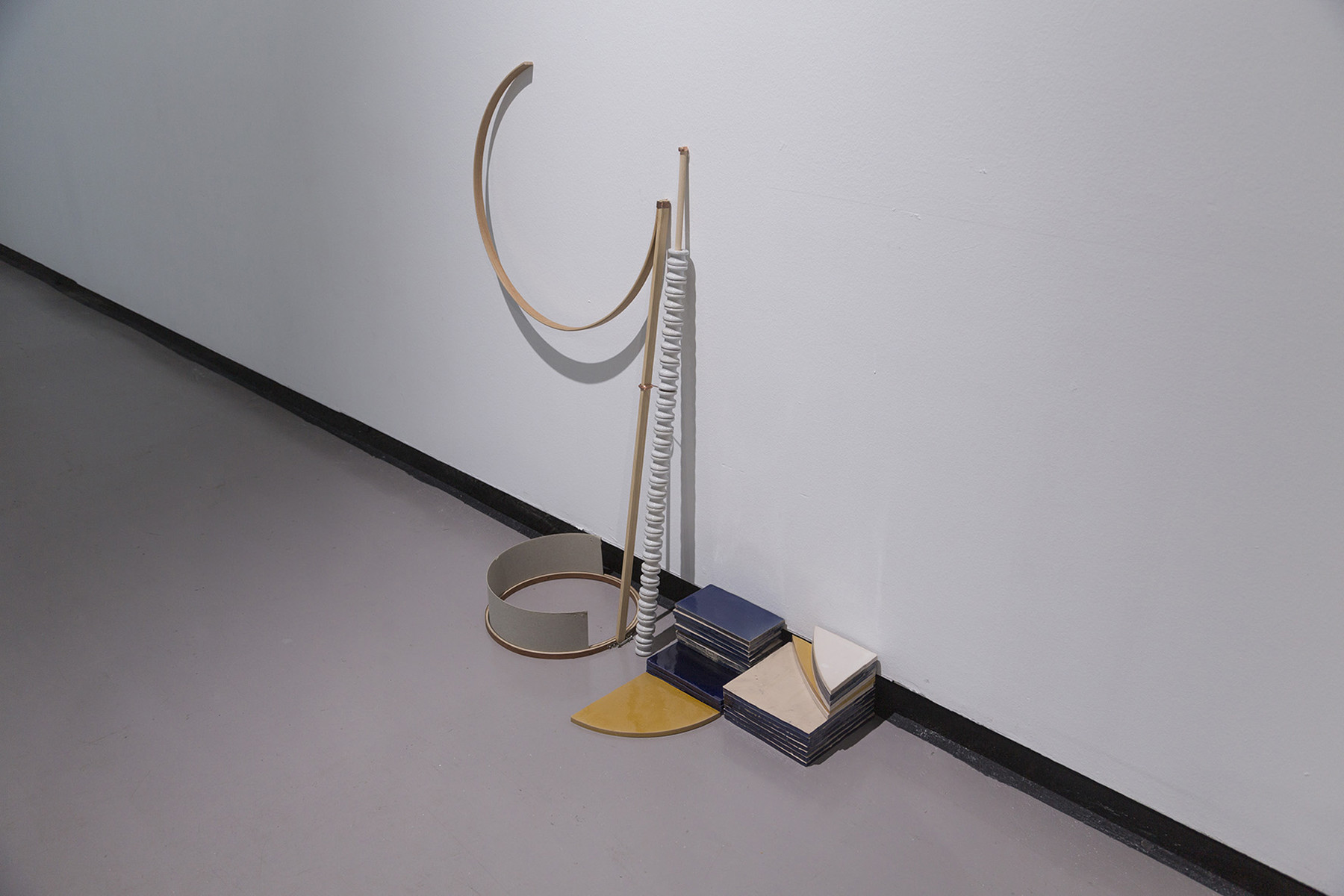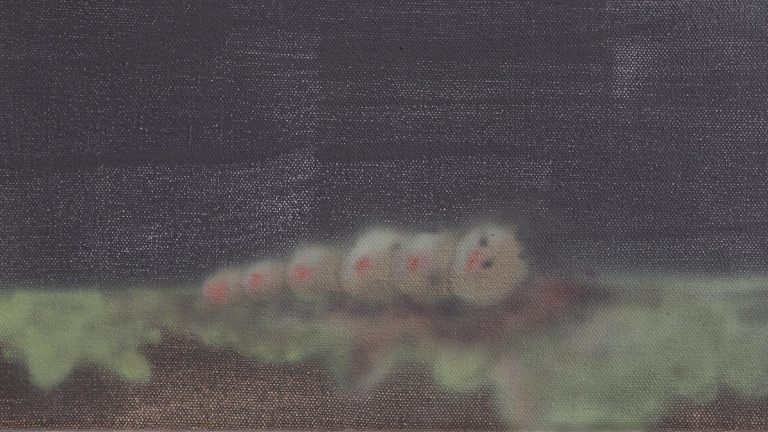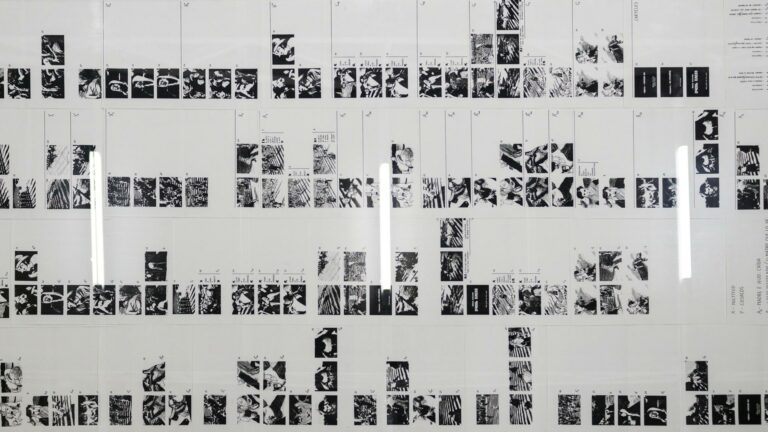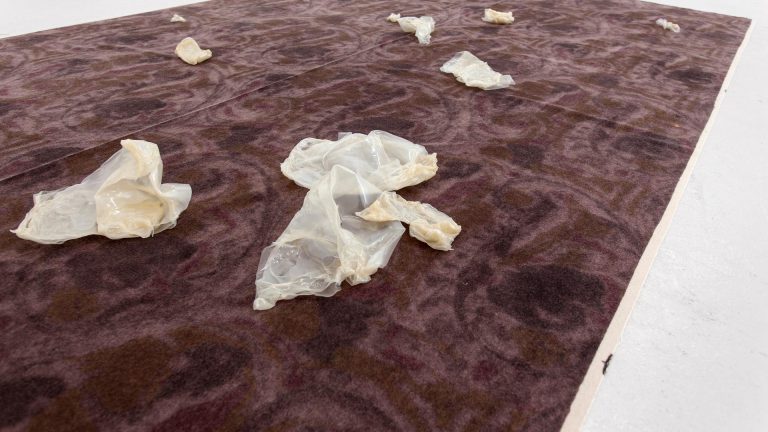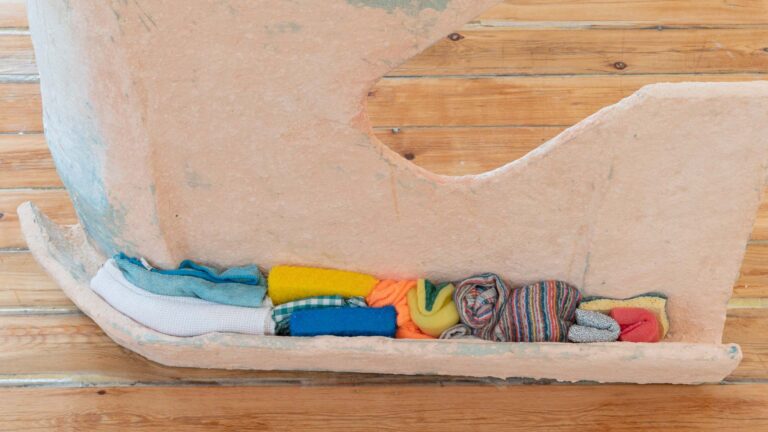Artist: Leonor Serrano Rivas
Exhibition titles: Decorative Elements, Recurrent Patterns
Curated by: Ana Ballesteros, Luisa Espino, Alberto Figueroa, Raquel López
Venues: Centro Andaluz de Arte Contemporáneo, Sala Santa Inés, Seville, Spain
Date: November 18 – March 19, 2017
Photography: Javier Artero, all images copyright and courtesy of the artist, Centro Andaluz de Arte Contemporáneo and Sala Santa Inés, Seville
One way to approach the recent body of work of Leonor Serrano Rivas is to understand it as a deconstruction of sorts of what would make a theatrical event. Enamoured of theories exploring classic Greek drama—but approaching them from a purely intuitive perspective, rather than the academic precision of a scholar—Serrano Rivas arrived at Oliver Taplin’s Comic Angels (1993). In it, the British academic and classicist tells of how, when preparing his comedy The Birds (414 BC), Greek playwright Aristophanes began the play not by writing the script, as if would seem most usual, but by designing the costumes of the chorus, the so-called birds of the title.
This was trigger that sparked the idea for Serrano Rivas’ performance An Ornamental Way of Moving, which premiered in 2016 at Chisenhale Dance, London. This piece originated her two most recent projects: Decorative Elements staged both at Seville’s Centro de Arte Andaluz Contemporáneo (CAAC) and Recurrent Patterns at Sala de Exposiciones Santa Inés, Seville. In them, the Spanish artist has presented three key elements of a theatre play—the stage, the costumes and the backdrop—across the two venues, joining them across space via three scripts. But, who’s acting in this play? And more importantly, who wrote the script?
At both Serrano Rivas’ concurrent exhibitions in Seville, it’s you, the viewer, who barges into the space, much like Pirandello’s lost characters entering the scene. These forms of making—or doing—were explored already in An Ornamental Way of Moving, a durational performance where live bodies merged with still life compositions. In all these three pieces, the viewer enters into a flickering backstage that changes position following an internal logic, while responding also to the movements of others bodies in the space.
Serrano Rivas’ pieces take two components of classical theatre: the chorus and stage design. For her, scenography is understood as a type of ornament within a stage setting, with the function of setting the mood or atmosphere of the scene. On the other hand, the chorus functions as an accumulation of individuals designated to be interdependent to each other, working as an unique organism whose role is to stand behind the protagonist, amplifying his or her discourse.
In Decorative Elements, the artist uses the architecture of the CAAC create a set that encloses an imaginary chorus. The imposing chimneys of the southern gallery corridor form pillars that frame the scene. In the space, viewers traverse a succession of “curtains,” which make us accomplices of a predetermined plot. In the same way that the attire of the characters was thought to represent their identity in the origins of theatre, the shapes of these elements dramatize the members of a choir.
Recurrent Patterns is the second act of this peculiar theatre, where chorus and scenography comes together again presenting a video installation projected into a huge piece of stage machinery suspended in the space.
In both Decorative Elements and Recurrent Patterns bodies are brought to life by the script, a series of descriptions developed by external agents chosen by Serrano Rivas. In the three works, the artist uses the spaces as a stage on which to dramatize the work and constantly rearrange it to introduce us into a theatrical plot that thickens with time. Serrano Rivas wants her works to be perceived through the integration of each performer’s rhythm in the scene.
-Lorena Muñoz-Alonso
Leonor Serrano Rivas at Centro Andaluz de Arte Contemporáneo

